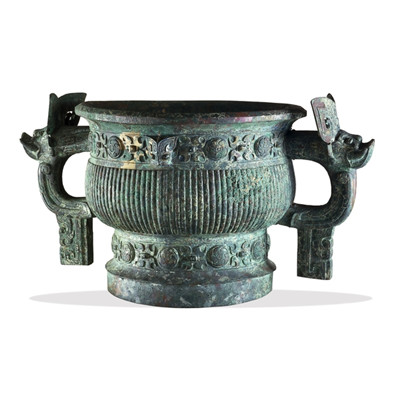How often do you dine with the dead?
你是否常與逝者共食?
It may seem a strange question, but if you're Chinese it may not be quite so surprising, because many Chinese,
這問題聽起來奇怪,對中國人來說卻仿佛理所當然。
even today, believe that deceased family members watch over them from the other side of death, and can help or hinder their fortunes.
至今仍有很多中國人相信,他們?nèi)ナ赖募胰藭诹硪粋€世界注視著他們,賜福或降禍給他們。
When somebody dies, they're equipped for burial with all kinds of practical bits and pieces:
如果有人去世,他們的隨葬品會準備得十分齊全:
a toothbrush for instance-money, food, water-possibly a credit card and a computer.
牙刷、錢、食物、水,如今也許還會加上信用卡和電腦。
The Chinese afterlife often sounds depressingly like our own.
中國人去世后的生活聽起來與我們的并無不同。
But there is one great difference: the dead are paid huge respect.
但有一點差別極大:在中國,逝者會獲得極大的尊重。
A well equipped send-off is just the beginning:
一場準備齊全的葬禮僅僅是開始,
ritual feasting - holding banquets with and for the ancestors-has been for centuries a part of Chinese life.
幾千年來,中國人一直為死去的祖先準備盛宴,并與之共享。
"The primary and most ancient religion in China consists of preparing ceremonial meals for the dead."
“中國最主要及最古老的宗教由為逝者準備正餐組成。”
"In Chinese way it's ritual, particularly of banquets, offering your ancestor food."
“在中國眼中,這是一種儀式,是特別的宴會,為你的祖先提供食物。”
A history of the world.
世界歷史,
In a hundred objects.
百件藏品,
Bronze gui,, a ritual food vessel from western China , aproximatelly 1500 BC.
發(fā)現(xiàn)于中國西部約公元前1100至公元前1000年的青銅簋。












